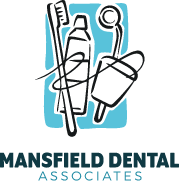Maybe you’ve been there before: you bite down on something and you hear a crack! Or maybe your tooth gets damaged in an accident. The problem with a damaged tooth is that it will get worse the longer you procrastinate treating it. The pressure from biting and chewing your food, or even grinding your teeth when you sleep, can cause the crack to grow worse. A worst case scenario is that a piece could eventually break off or the tooth can become so damaged that it can no longer be restored. In most cases, though, those scenarios can be avoided by restoring the cracked tooth. Restoring a damaged tooth gives it protection from further damage and returns the form and function to the tooth.
Full Protection From a Dental Crown
A dental crown is made to completely cap your tooth like a permanent helmet. Depending on the material used to make it, a crown can closely mimic the size, shape, and contour of your tooth to give a natural, lifelike appearance. When placed, the crown is bonded in place over the damaged tooth, permanently covering and protecting it to stop the tooth from fracturing further. Because tooth structure cannot repair itself, like your skin or tissue, a dental crown can help preserve your tooth and restore your bite’s function without having to extract and replace it. Before placing the crown, the inside of the tooth may need to be disinfected.
Minor Damage Repaired With Bonding
Not all cracked teeth require a crown for restoration. For example, if the crack is only minor or only affects the surface of your tooth, a more conservative option like bonding. Cosmetic bonding uses the same resin material used in tooth-colored fillings. The material is applied directly to the outer surface of tooth before being hardened and polished. Correcting minor damage with bonding can restore the tooth’s appearance, as well as the abilities to bite and chew.
Do you have a cracked tooth that needs repair?
A cracked tooth can be restored. To schedule a consultation with Dr. Jones and Dr. Harris of Mansfield Dentist Associates in Mansfield, TX, call (817) 473-6227. We treat patients from the Mansfield, South Arlington, Kennedale, Southeast Ft. Worth, Alvarado, and Midlothian areas.





Recent Comments